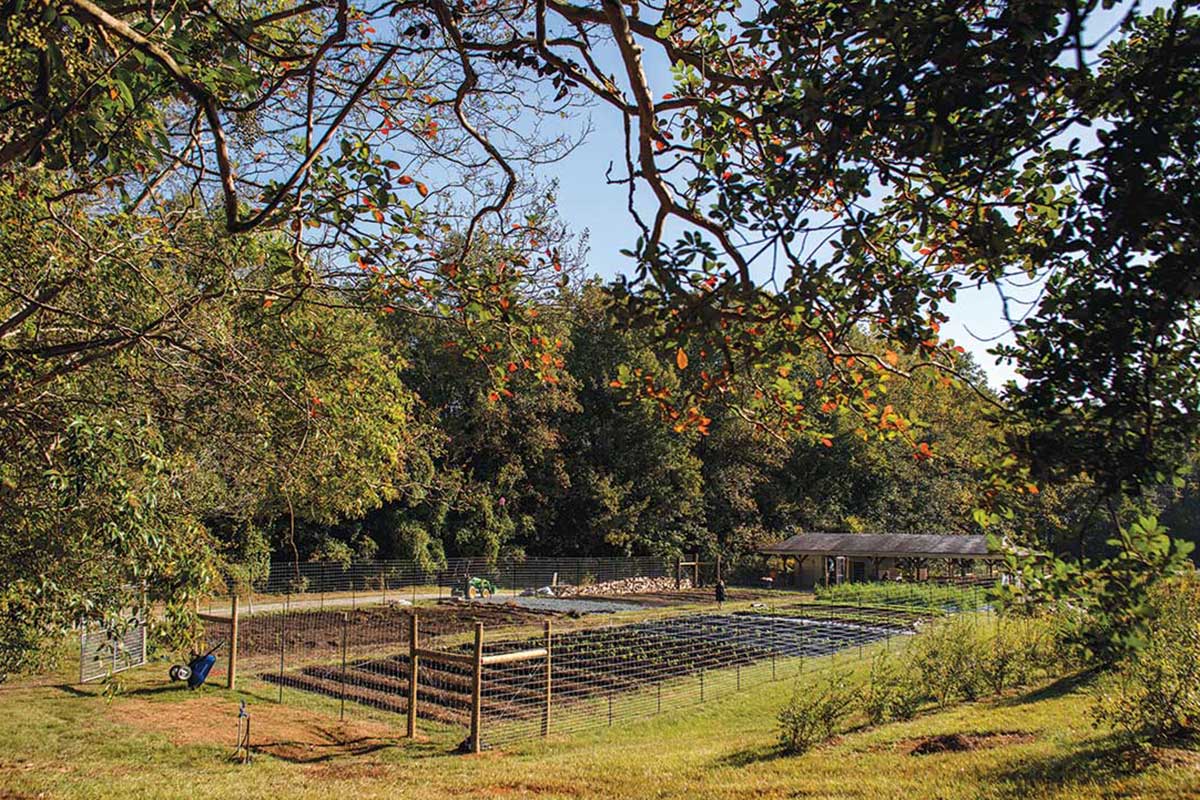
17 Dec The Urban Farm at Aldersgate: A Bright Spot Year-Round
When the temperature drops and days get shorter here in Charlotte, Aldersgate residents and community members have a unique escape: The Urban Farm. This 6.7-acre patch of agricultural stewardship is located on Aldersgate’s campus, where farm-fresh produce is planted and harvested seasonally. Residents have access to the farm via a walking path from the main campus. The Urban Farm is a fantastic partner in Aldersgate’s commitment to community service, and is a fun and useful resource, benefiting both the local community and Aldersgate residents.
The Roots and Fruits of Partnership
The story starts with one of Aldersgate’s partner organizations: The Carolina Farm Trust. The team at Carolina Farm Trust holds a clear vision: “Foster a region in which food systems promote social, environmental and economic resilience.” The Carolina Farm Trust works to bring fresh, bountiful, locally-grown food to the plates of Carolinians every day. Their approach is comprehensive and collaborative, working alongside partners, farmers and growers, farms, markets, and consumers as they strive to make the Carolina region a global leader in local food production and consumption.
The decision to partner with the Carolina Farm Trust ties back to one of Aldergate’s key goals: To consider and care for the larger Charlotte community by being a good neighbor. Unlike many retirement communities, Aldersgate actively integrates philanthropy into its culture, inviting residents to join hands in initiatives like The Urban Farm.
An Intergenerational Resource, Available to All
The Urban Farm is much more than just a farm—it’s a hub of learning, health, and community engagement. Accepting EBT and SNAP payments, The Farm ensures that affordable, fresh food is available to everyone in the community. It also serves as an educational lab for local high school students, teaching them about the importance of sustainable agriculture and the rich agricultural history of the Carolinas.
Intergenerational programming further enriches the farm’s offerings, bringing together older adults, teenagers, and preschoolers to share knowledge, stories, and a connection to the land. Whether it’s harvesting ripe tomatoes or discussing the origins of heirloom seeds, the farm fosters bonds across generations.
What Grows on the Farm?
The farm has grown tomatoes, okra, eggplant, watermelon, basil, squash, zucchini, green beans, and hibiscus—to name a few. With a focus on both local and exotic fruits, vegetables, and flowers, the farm provides crucial thought leadership to the community on how to honor Carolinian agricultural roots while also looking to future innovations. There’s even beekeeping and an aviary!
Year-Round Enjoyment and Support
Aldersgate residents are proud supporters of The Urban Farm, and they reap its benefits year-round. The Farm embodies the values of sustainability and community that Aldersgate holds dear, creating a legacy of care that stretches far beyond its fences. Off campus, residents enjoy supporting local farmers by patronizing local produce markets as well.
In every season, The Urban Farm at Aldersgate is a reminder that good food, hard work and a shared vision can bring people together in extraordinary (and delicious) ways. Come visit the Urban Farm this winter to feel the spirit of community—and leave with farm-fresh ingredients for your holiday dinner table! You can find The Urban Farm at 4101 Somerdale Ln, Charlotte, NC 28205, just a short walk from the Aldersgate’s main Wintergarden building.